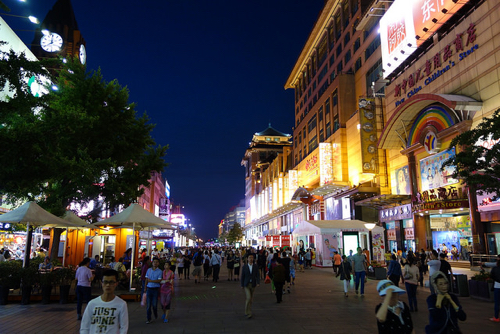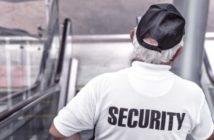By all accounts, Beijing is a safe city. According to the 2015 Crime and Safety Report published by the US Department of State’s Overseas Security Advisory Council (OSAC), the most common incidents are petty crimes such as pickpocketing, credit card fraud, and other scams. Violent crime involving the expat community tends to happen after-hours in bars and clubs, where factors like cultural misunderstanding, xenophobia, alcohol use, a rarely-enforced legal drinking age, and overcrowding can cause fights.
However, a couple of high-profile cases in the past year have highlighted the need to remain vigilant about safety in broad daylight. In August 2015, a sword-wielding man attacked a French-Chinese couple outside the Uniqlo store in Taikoo Li Sanlitun, leaving one person dead and the other seriously injured. In December, several embassies warned of potential threats to foreigners around Christmas Day in Sanlitun following a yellow-level alert – the highest possible – from the Public Security Bureau.
Situational awareness – the ability to observe one’s surroundings and assess potential threats – is a crucial part of staying safe, but it takes time and training to develop. Some Beijing residents have resorted to self-defense courses such as those offered by Krav Maga Global (KMG), which teaches a self-defense system based on that used by the Israeli military.
Krav Maga has a reputation in some circles as a brutal combat sport, but KMG China Director Von Ng is quick to debunk this perception. “Krav Maga is first and foremost about defensive action and strategy,” he says. “For civilian use, it is about preventing, avoiding, and getting out of a bad situation, and not picking a fight or provoking other people.”
He recommends adopting a cautious attitude when it comes to stepping into potentially volatile situations. “In China, it is a cultural and societal issue as much as a legal one. For example, although there are now laws against domestic violence, as a culture the practice is to not intervene in conflicts between family or friends,” he says.
“It is important to understand that getting involved will always have consequences. As such, it is always important to gauge a situation properly before going into it. There is a difference between apathy and caution.”
To complicate matters, the lack of Good Samaritan laws in China means there have been cases where people were penalized for trying to help a stranger. In November 2006, 26-year-old Peng Yu escorted an elderly woman to the hospital after she broke her hip trying to board a bus in Nanjing. She claimed that he caused her fall and sued him; the court eventually ordered Peng to pay RMB 45,000 in damages. Though the facts of the case were later disputed, the news drew widespread condemnation and undoubtedly had a chilling effect on would-be Good Samaritans.
With that in mind, newcomers should familiarize themselves with the local language, customs, and environment in order to make better decisions about their safety. Those who are interested in taking self-defense courses can rest assured that no previous martial arts or combat experience is needed. “The more open-minded and willing a student is to learn, the better they learn,” says Yonina Chan, KMG China’s general manager and a recently-certified instructor.
“Sometimes we have people who come in with a lot of previous experience but who have trouble learning simply because they insist on their way and doing what they already know. On the other hand, we have others who have never done any martial arts before but end up progressing much faster because they actually listen, take in the corrections, and try to be open to what is being taught.”
Classes take place at KMG China’s Sanyuanqiao location and attract a wide variety of students: expats, locals, men, women, high schoolers, parents, young professionals, etc. The second branch in Shuangjing is slated to open this month and KMG China is introducing classes geared towards children and teenagers, partly as a response to safety issues highlighted in the past year.
“We believe that kids and teens have to learn about safety and self-defense at an early age. They have to develop danger recognition, correct decision-making, problem avoidance, calling for help, reporting incidents, and, if needed, fighting and defending themselves,” says Ng.
Instructors will tailor the KMG curriculum and testing process to each age group as well as address special topics such as bullying and staying safe when moving to a new city for university.
“With kids and teens, it is also important that we focus on motor skills, coordination, self-confidence, discipline, social skills, and character development. These are built into the classes in a way that is very different from adult classes,” explains Ng.
One final thing to keep in mind is that self-defense training is not a silver bullet. “From dealing with prevention and awareness, all the way to fighting to survive, we assume that you are at a disadvantage and need to use all the tools you have and the presence of mind to survive and get away,” says Ng.
“Developing your reaction to many possible real-world problems is a long process and not something done in a simple one-hour groin-kicking seminar.”
Resources
● Beijing Municipal Public Security: Visit www.bjgaj.gov.cn to read about public security in Beijing, including police news and articles.
● Overseas Security Advisory Council (OSAC): Visit www.osac.gov and search “crime and safety reports Beijing” to find the latest reports on public safety.
● KMG China: Visit www.kravmagaglobal.com.cn to learn more about Krav Maga and see class schedules. Trial classes are free.
Important Numbers
Save the following numbers in your phone as well as your embassy’s contact information:
● Police: 110
● Fire: 119
● Traffic accidents: 122
● Ambulance (English hotline): 999
● Ambulance (Chinese hotline): 120
● Beijing Chaoyang District Center for Disease Control and
Prevention: 6777 3512
● Foreign Emergency Services: 6525 5486
● Beijing United Family Hospital Emergency Services:
5927 7120
● International SOS Clinic and Emergency Services: 6462 9112
Safety Tips from KMG China
The following tips are condensed from an email sent out to KMG China members in the wake of the sword attack in Sanlitun.
● Think of awareness as a choice. This means putting away your mobile device, taking off your headphones, and consciously observing everything around you. Watch how people move and interact, what and where things are around you, what the traffic is like, etc. When you are first practicing this, it will seem awkward and obvious to others. But as with anything, it takes conscious practice over time to become smoother and better at picking up details and subtle changes without looking like a nervous and paranoid person. The act of being aware will then become natural to you, like an app running in the background.
● Determine the baseline. A baseline is the “normal state” of things. In a coffee shop, most people will move in a relaxed manner, talk in a certain volume and tone, gesture in a certain way. A disturbance in the baseline means something out of the ordinary has occurred. This can be as obvious as someone suddenly yelling, running, or moving aggressively, or something subtler, like someone looking shifty or uneasy, or someone constantly staring at you. A disturbance at times means nothing, but other times it could signal something bad about to happen.
● Do not dismiss anomalies. A lot of times, people notice disturbances in the baseline but choose to ignore or discard these signs, even if they indicate possible danger. This is in part because we tend to hope or believe that there is no danger, and also in part because we fear being mistaken or we don’t want the trouble of getting involved. It is always wiser to act defensively than to just hope things will be OK. It does not mean you have to immediately go to extremes (i.e. resort to violence). The point is to act as early as possible to avoid an extreme situation.
● Avoid “focus locks.” Focus locks are distractions that prevent us from practicing situational awareness. While mobile phones are the most obvious focus locks, they also include blasting music loudly into your headphones, being deep in conversation with someone, staring at something that catches your attention, or even eating while walking on the street. If you need to engage in a focus lock, do it in a controlled environment like at work or at home.
● Look up before you look down. If you must engage in a focus lock in public (e.g. taking an important phone call), make it a habit to check your surroundings before looking down. If you frequently take phone calls while outside, consider using hands-free headsets that don’t block out ambient noise (like those made for runners or cyclists). When you are walking and talking with a friend, make it a point to scan your environment; they will understand.
● Know when to seek help. If you see someone with a deadly weapon, alert security and do not engage with the potential threat yourself. Be familiar with the local emergency hotlines or know where your local police station is. In these cases, it is important to get the right people to help and not try to be a hero yourself, which might simply cause a panic or end up with people getting hurt.
Photo: Yun Huang Yong (Flickr)
This article originally appeared on pages 40-41 of the 2016 Home and Relocation Guide. Click here for your free online copy. To find out how you can obtain a hard copy, contact distribution@truerun.com.




